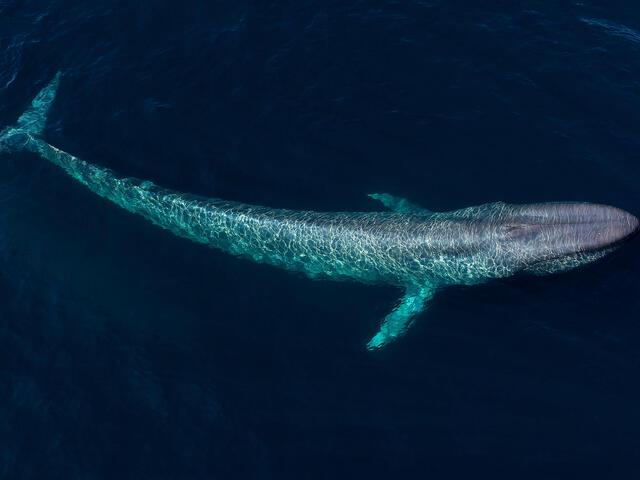Blue Out: The Disappearing Act of the World's Largest Animal
In the depths of our oceans, a species is silently screaming for attention. The blue whale, the largest animal on Earth, is facing a catastrophic decline that could lead to its extinction. With only a few thousand individuals remaining, the blue whale is on the brink of disappearing forever. It is imperative that we take immediate action to address this pressing issue, as the consequences of inaction will be devastating.
The Tragic Decline
The blue whale's population has been in decline since the 19th century, largely due to commercial whaling. The International Whaling Commission (IWC) estimates that over 300,000 blue whales were hunted between 1800 and 1970. Although commercial whaling was banned in 1986, the effects of historical hunting continue to impact the species today. Additionally, entanglement in fishing gear, ship strikes, and noise pollution from human activities are further threatening the blue whale's survival.
The Current State of Affairs
According to the latest census, there are only approximately 2,500 to 3,000 blue whales remaining in the world's oceans. This decline is most pronounced in the eastern Pacific population, which has decreased by over 90% since the 1930s. The western Pacific population is also declining rapidly, with estimates suggesting a 50% drop in just two decades.
The Consequences of Extinction
The loss of blue whales would have far-reaching consequences for our planet. As apex predators, they play a crucial role in maintaining the health of our oceans. They help regulate the populations of smaller whales and marine mammals, which would lead to an imbalance in the ecosystem. Additionally, blue whales are an important indicator species, providing valuable insights into the overall health of our oceans.
What Can We Do?
The time for action is now. To prevent the extinction of the blue whale, we must:
1.Reduce Noise Pollution**: Decrease human-generated noise in the ocean to reduce stress and disorientation in blue whales.
2. Protect Critical Habitat**: Establish and maintain marine protected areas to safeguard blue whales' feeding grounds and migration routes.
3. Enforce Conservation Laws: Strengthen international agreements and enforcement mechanisms to prevent illegal whaling and protect blue whales from bycatch and ship strikes.
4. Support Research and Education: Fund research initiatives to better understand blue whale behavior and ecology, and promote education and awareness about the importance of conservation efforts.
5. Make Sustainable Choices: Choose sustainable seafood options and support eco-friendly tourism practices to reduce our impact on marine ecosystems.
A Call to Action
The fate of the blue whale is in our hands. We must work together to address this pressing issue before it's too late. We owe it to ourselves, our children, and future generations to take action to preserve this magnificent species.
Join us in demanding urgent action from governments, organizations, and individuals to protect the blue whale and its habitat. Together, we can make a difference and ensure that these majestic creatures continue to thrive in our oceans.
Sources:
* International Whaling Commission (IWC)
* National Oceanic and Atmospheric Administration (NOAA)
* World Wildlife Fund (WWF)
* ScienceDirect
* Ocean Conservancy

